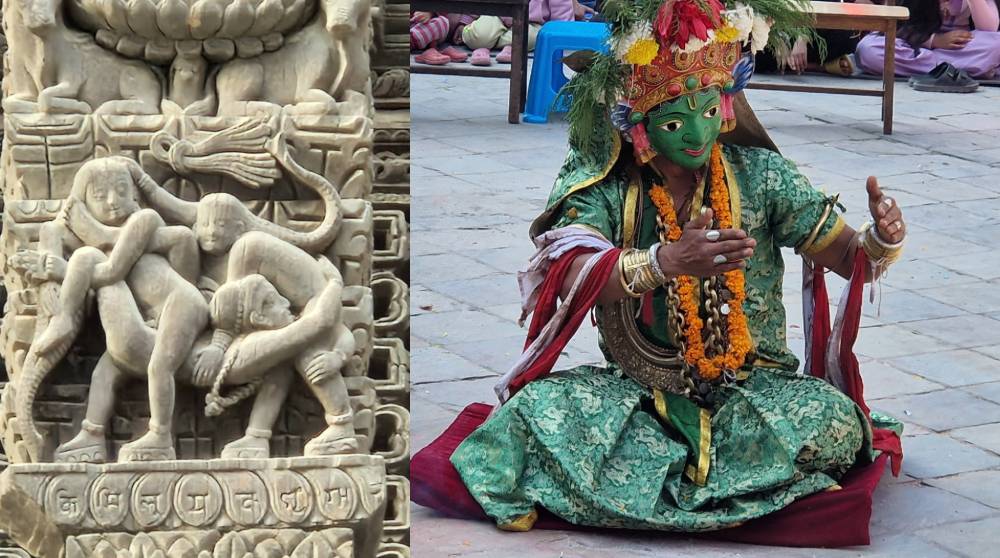
In recent years, every June, rainbow flags rise, parades take over city streets, and institutions across the world declare their support for LGBTQIA+ rights. But beneath the celebration lies a deeper question: Whose pride are we really celebrating?
June Pride Month is often presented as a global movement. But the truth is, it is rooted in the history, climate, and calendar of the West, particularly North America and Europe. In the Global South, we are encouraged—and often funded—to adopt and mimic this Western timeline, while our own indigenous histories, festivals, climates, and traditions are overlooked, underfunded, or erased.
Stonewall and the Western Script
The origins of June Pride trace back to the Stonewall Uprising of June 1969 in New York City—an important and courageous moment in American LGBTQIA+ history. But why has one Western protest become the universal reference point for queer resistance globally?
In America and Europe, Stonewall is celebrated as a symbol of liberation. But in Asia, Africa, and Latin America, we also have long, rich histories of gender and sexual diversity—and resistance. Many of our cultures did not criminalize or stigmatize GSM/LGBTI individuals until colonial patriarchy (all colonials from the histry to the present times) imposed legal, religious, and cultural oppression. But our histories are rarely taught or celebrated beyond our borders. They are never allowed to become global.
June in the Global South: A Seasonal and Climatic Imposition
Let’s not forget that June is a summer month designed for outdoor festivities in Europe and North America. Warm weather, long days, and open skies provide the ideal conditions for parades, parties, and festivals.
But in many parts of the Global South, June is a time of extreme heat, humidity, and discomfort. In South Asia, the heat is oppressive. In the Middle East and much of Africa, it’s punishing. In Latin America, it can be unbearable. Yet we’re expected to march, dance, and protest in high heels, full makeup, heavy costumes, and layers of glitter—performing Western pride rituals under boiling skies.
What feels like freedom in New York or Berlin often feels like physical torture in Lagos, Kathmandu, Manila, or Delhi. This is not just a symbolic imposition, but a very literal, bodily one. The climate mismatch highlights how even the calendar of Pride privileges the West.
Erasing Indigenous Identities and Rituals
We’re also forced to adopt the Western acronym—LGBTQI+—at the cost of our local identities. What happens to hijra, meti, kothi, bakla, fa’afafine, muxe, ashtime, bissu, or two-spirit when everything is flattened into five or six English letters?
This language of pride, these colors of pride, this timing of pride—none of it comes from us, yet we are asked to embrace it as if it were universal.
Where are the international recognitions and funds for Gaijatra (Nepal), Hijra Habba (India), Two-Spirit Gatherings (Turtle Island), Muxe celebrations (Mexico), Fa’afafine pageants (Samoa), or Bissu rituals (Indonesia)? These are not just cultural festivals—they are queer pride traditions, often older than modern states themselves. But they are seen as “folklore” while Pride March in London is broadcast live on global television.
The Question We Must Ask: Are We Still Being Colonized?
Even in our queerness, we are still being colonized—through language, seasons, calendars, funding streams, visibility metrics, and symbols.
Why is “Pride” in June assumed to be global?
Why do we celebrate Stonewall, but not our own moments of queer resistance?
Why are we funded to fly rainbow flags, but not our traditional symbols of gender-diverse dignity?
Why are our festivals called “local” and “cultural,” but Western ones are “universal” and “political”?
This is not inclusion—it is soft imperialism. Rainbow-washing cannot hide the fact that the dominant model of Pride still centers the Western, white, urban, cisgender, male experience, and exports it to the rest of the world.
Toward Decolonized Pride
A truly global queer movement must be more than a parade. It must be:
Plural, not monolithic. Local cultures must define their own expressions of pride—on their own calendars, in their own languages, and through their own symbols.
Climate-sensitive. There is no liberation in marching under sunstroke.
Historically grounded. Our resistance did not begin at Stonewall.
Funding-just. Donors must support Indigenous and local queer traditions, not just replicate the Western model.
Pride must be a space for plurality, not just replication. The struggle for freedom is not owned by any one geography. Pride is not a parade—it is a process. And it must belong to all of us, in our own time, our own words, and our own weather.
Copyright © All right reserved to pahichan.com Site By: Sobij.